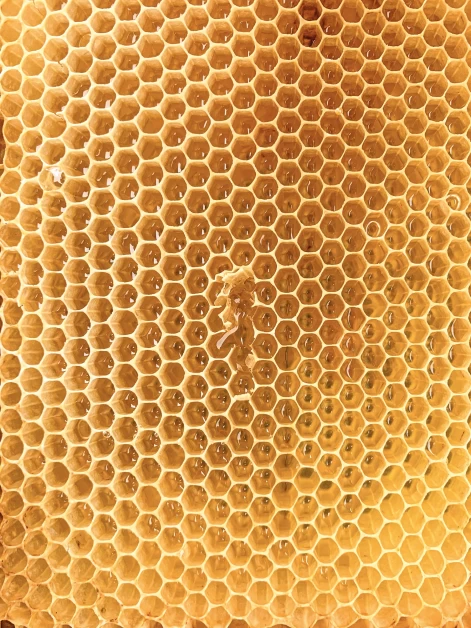Table of Contents
Manuka honey, a variety of honey from New Zealand, is highly regarded for its impressive health benefits, including its antibacterial, anti-inflammatory, and antioxidant properties. In this article, we will explore the best ways to incorporate this liquid gold into your diet to support heart health. We spoke with May Zhu, RD, a registered dietitian, who confirmed that manuka honey is indeed worth the buzz and shared the reasons why.
What is Manuka Honey?
Manuka honey is not like your standard honey that you find in a teddy bear-shaped container. It is produced by bees in New Zealand that pollinate local manuka plants. These flowers only bloom for a short period of six to twelve weeks each year, making sourcing the honey a frenzy. The Unique Manuka Factor Honey Association, which tests and verifies manuka honey brands as authentic, states that the nectar and bees give manuka honey its unique health properties. Unlike regular honey, manuka honey is pricier, often double the price or even higher. So, is it worth the extra cost? According to Zhu, the answer is yes, due to its impressive benefits.
Health Benefits of Manuka Honey for Heart Health
-
Antibacterial Properties: One of the key benefits of manuka honey is its antibacterial properties. It is high in compounds like methylglyoxal, which is associated with antibacterial benefits. This can potentially help protect against illness by fighting off harmful bacteria and pathogens. However, more research is needed to fully understand the extent of manuka honey’s antibacterial benefits.
-
Antioxidant Power: Manuka honey is rich in antioxidants, particularly flavonoids. These antioxidants help the body function more efficiently and protect it against everyday stressors and toxins. Regular consumption of manuka honey may help protect against diseases and cognitive decline.
-
Wound Healing: Manuka honey’s antibacterial properties can also be beneficial for wound healing. Studies have shown that it can kill bacteria, reduce inflammation, and aid in tissue regeneration. While it may not be suitable for serious injuries, it can be helpful for smaller cuts and skin issues.
-
Trace Minerals: Manuka honey contains trace amounts of nutrients like vitamin B, iron, magnesium, copper, and zinc. While these minerals are also found in regular honey, manuka honey contains higher amounts. These minerals can be particularly beneficial for individuals following a plant-based diet, as they may help fulfill nutrient requirements.
-
Gut Health: Some studies suggest that manuka honey may be good for gut health. It can help kill harmful bacteria and pathogens, promoting a healthy gut microbiome. However, more research is needed to establish solid data in this area.
-
Skin Health: Manuka honey is known for its soothing and moisturizing properties, making it beneficial for skin health. Its anti-inflammatory and antibacterial properties can help calm and nourish the skin. While all honey has these properties, they are more pronounced in manuka honey.
Who Should Avoid Manuka Honey?
While manuka honey offers numerous benefits, it is important to be mindful of its sugar content, just like with any other honey. One tablespoon of manuka honey contains 16 grams of sugar. Individuals with diabetes should be especially cautious about their manuka honey intake, as it can affect blood sugar levels. Additionally, individuals on a tight budget may find manuka honey to be more expensive than regular honey.
How to Incorporate Manuka Honey into Your Diet
-
In Beverages: Add a teaspoon of manuka honey to your coffee or tea for a soothing and antibacterial boost. This can help alleviate a sore throat or calm an upset stomach.
-
In Cooking: Manuka honey can be used in both cooked and raw dishes. Spread it on toast with cinnamon and butter, drizzle it over oatmeal or waffles, or use it as a sugar substitute in baked goods. While it is more expensive, it can be saved for special occasions, and regular honey can be used more regularly.
-
Topically: Apply manuka honey directly to small cuts or wounds. Clean the wound with water, then spread a quarter of a teaspoon of manuka honey on the bandage before applying it. You can also find wound gels with manuka honey at the drugstore.
-
In DIY Beauty Products: Mix manuka honey with ground-up oats to create a soothing and moisturizing exfoliator for the face. Apply the mixture to your face, then rinse it off for a natural skincare treatment.
When purchasing manuka honey, ensure that you are getting a high-quality product by looking for certified manuka honey verified by independent auditors. The certification should be indicated on the product label, with the primary certifier being the Unique Manuka Factor Honey Association.
In conclusion, manuka honey offers numerous health benefits, including antibacterial, antioxidant, and wound healing properties. It can also be beneficial for gut and skin health. However, individuals with diabetes should be cautious about their sugar intake, and those on a tight budget may find manuka honey more expensive than regular honey. By incorporating manuka honey into your diet and skincare routine, you can support your heart health and overall well-being.

